“Yoga Put to the Test for Headaches,
Diabetes, Osteoarthritis, and the Elderly” Yoga is an ancient mind-body
discipline which originated in India thousands of years ago, and that’s where most yoga
studies are done to this day. This has raised concerns
that national pride might incline Indian researchers
to quietly shelve any negative results and just publish studies
showing yoga works. This fear is not without precedent. For example, research conducted in
China, Japan, Hong Kong, and Taiwan were found to be uniformly
favorable to acupuncture; all trials, without exception,
were positive. Now, one possible explanation
for this finding is that acupuncture is just
more effective in countries where it is traditionally practiced,
but it’s a little suspicious. So, are Indian yoga trials
more likely to be positive than those from other countries? They looked at hundreds of
Randomized controlled trials of yoga, both done in India and
done in other countries, and trials on yoga conducted in India
had about twenty-five times the odds of reaching positive conclusions
as those conducted elsewhere. Again, yes, yoga might be more
effective in India than elsewhere, but it is a little suspicious. So, for example, if you’re interested
in whether yoga is helpful for treating headaches,
and you read that yoga appears to be helpful
For those suffering from tension-type headaches,
but then you find out that nearly all such studies were
conducted in India, what do you do
with that information? Also, notably, none
of the control groups had any sort of exercise component,
though this may be less critical for tension headaches, since
neither aerobic exercise training… Nor does strength training
appear to help them. So, if we’re to believe
the Indian study conclusions, yoga may indeed help
with tension headaches, but even they found
no effect for migraines. What may help migraines,
though, are other types of exercise, specifically aerobic exercise,
decreasing migraine pain intensity, frequency, and duration,
at least in the short term. What about the benefits
of yoga practice compared to physical exercise
in the management of type 2 diabetes? A significant reduction
in both short-term and longer-term blood sugar control
was noted in the yoga groups compared to other
exercise control groups.

However, the findings may need
to be interpreted with caution, since nearly half of the studies
didn’t define and adhere to a well-planned exercise regimen
in the control group. Furthermore, an exercise intervention
comparable in intensity to yoga was followed only in three
out of the eight studies included. And, for what it’s worth,
The majority of the studies, six out of eight, were from India. When yoga was carefully
compared to sham yoga, which consisted of chair exercises,
standing exercises, and slow walking to match
the yoga session, the relative yoga
benefits evaporated. Both yoga and sham yoga had identical effects
on blood sugar status. Hence, further well-controlled
Randomized trials are required prior to drawing conclusions
about the benefits of yoga in comparison to physical exercise
in patients with diabetes. Similar tentative conclusions were
reached for yoga for osteoarthritis. Put all the studies together
and yoga may indeed be effective for improving pain, function,
and stiffness in individuals with osteoarthritis of the knee,
compared not only to doing nothing but compared
to other kinds of exercise. They had some issues with
the quality of some of the studies, and so only a weak recommendation
for the use of yoga for osteoarthritis, but hey, if you like yoga or if yoga
is the only kind of exercise you’re willing to do, then
It’s probably better than nothing. Finally, in this video,
Let’s look at the effects of yoga compared to active and inactive
controls meaning like compared to other exercise regimens
or just like doing nothing on physical function and
health-related quality of life in adults aged 60 and older. Compared to doing nothing,
They found clear evidence that yoga improves physical function
and psychological well-being in older adults, so it definitely
better than nothing. What about compared
to other exercises? Yoga pulled ahead for lower limb
strength and lower body flexibility, but for improving balance,
mobility, and walking speed, yoga appeared comparable. Psychologically, yoga appeared
to beat out other exercises for alleviating depression
in older adults, but not anxiety or perceived
mental health in general.
As found on YouTubeNatural Synergy $47.⁰⁰ New Non-Invasive Alternative. To Electro-Acupuncture, Producing Astounding Results… Self-Application Is Easy, Rapid Response. You’re about to discover how both chronic and acute pain, skin conditions, migraines, and hundreds of ailments all stem from the same root cause ꆛ Yin Yang
Ailments🗯 such as➯➱ ➫ ➪➬ Chronic pain⇝Low immunity⇝Chronic acid reflux⇝High blood pressure⇝Addictions⇝Fibromyalgia⇝Allergies⇝Osteoarthritis⇝Headaches⇝Low back⇝pain Asthma⇝Headaches⇝Depression and anxiety⇝Urinary problems… to name just a few…

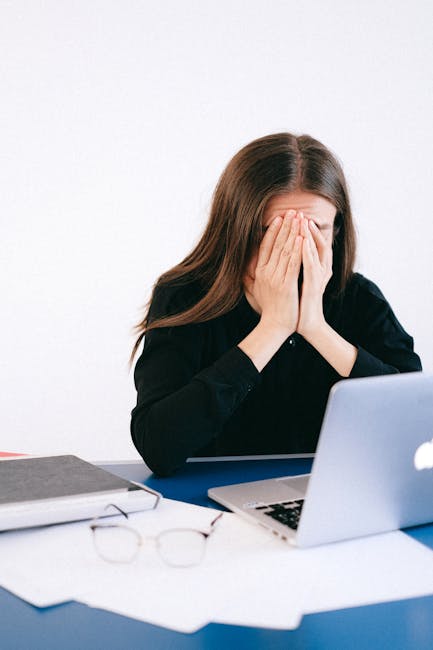 You talk yourself down all the time. Life isn’t always kind to us and self-love and a balanced lifestyle don’t come easily. Living with anxiety, especially if it’s hidden or suppressed, can make it hard for us to feel good about ourselves and let ourselves feel happy. It makes us believe that we don’t deserve it and traps us in a vicious cycle of negative self-talk and constant pressure to be perfect. 9. You have a lot of negative thoughts. Are you a pessimist who is quick to find the downsides in every situation? Do you find yourself getting upset or stressing out over even the most minor inconveniences? Is every day a constant battle with yourself against the spiral of panicked and rational thoughts you have? In 1997, famed psychologist and cognitive therapist, Aaron Beck, termed this kind of thought pattern as catastrophic thinking, Which he often observed in his patients who suffered from anxiety. And 10. You experience physical symptoms. Sometimes anxiety can be entirely physical because while your conscious mind may not always be aware of your anxiety it will make itself known to your body. Things like erratic heartbeats, chest palpitations, muscle tension, a clenched jaw, shaky hands up a sweating are all indicative of anxiety. Your body may be trying to let your mind know that you’re feeling anxious and stop it before it gets any worse. Do you relate to any of the problems listed here? Or do you do your best to seem ok? And hide your symptoms because you feel embarrassed about your anxiety? The truth is: you’re not alone and having mental health issues is nothing to be ashamed of. What do you plan to do next? Let us know in the comments below! Don’t forget to like this video and subscribe to Psych2Go for more psychology content. Thanks for watching and we’ll see you soon..As found on YouTubeI thought my anxiety disorder was for life… $49.⁰⁰ But I Discovered How Hundreds Of Former Anxiety Sufferers Melted Away Their Anxiety And Now Live Relaxed, Happy Lives – With No Trace Of Anxiety Or Depression At All! http://flywait.anxiety4.hop.clickbank.net We’ve seen so many people go anxiety-free that we have no hesitation in guaranteeing this program. So… If at any time within 60 days of you purchasing ‘Overthrowing Anxiety’, your anxiety hasn’t completely evaporated then you can have all your money back. No questions asked! You can do this for yourself today. You can start making a difference in your life right now. Click on the button below and you’ll receive your copy of Overthrowing Anxiety in just a few minutes. It’ll be one of the best decisions you’ve ever made – guaranteed! http://flywait.anxiety4.hop.clickbank.net
You talk yourself down all the time. Life isn’t always kind to us and self-love and a balanced lifestyle don’t come easily. Living with anxiety, especially if it’s hidden or suppressed, can make it hard for us to feel good about ourselves and let ourselves feel happy. It makes us believe that we don’t deserve it and traps us in a vicious cycle of negative self-talk and constant pressure to be perfect. 9. You have a lot of negative thoughts. Are you a pessimist who is quick to find the downsides in every situation? Do you find yourself getting upset or stressing out over even the most minor inconveniences? Is every day a constant battle with yourself against the spiral of panicked and rational thoughts you have? In 1997, famed psychologist and cognitive therapist, Aaron Beck, termed this kind of thought pattern as catastrophic thinking, Which he often observed in his patients who suffered from anxiety. And 10. You experience physical symptoms. Sometimes anxiety can be entirely physical because while your conscious mind may not always be aware of your anxiety it will make itself known to your body. Things like erratic heartbeats, chest palpitations, muscle tension, a clenched jaw, shaky hands up a sweating are all indicative of anxiety. Your body may be trying to let your mind know that you’re feeling anxious and stop it before it gets any worse. Do you relate to any of the problems listed here? Or do you do your best to seem ok? And hide your symptoms because you feel embarrassed about your anxiety? The truth is: you’re not alone and having mental health issues is nothing to be ashamed of. What do you plan to do next? Let us know in the comments below! Don’t forget to like this video and subscribe to Psych2Go for more psychology content. Thanks for watching and we’ll see you soon..As found on YouTubeI thought my anxiety disorder was for life… $49.⁰⁰ But I Discovered How Hundreds Of Former Anxiety Sufferers Melted Away Their Anxiety And Now Live Relaxed, Happy Lives – With No Trace Of Anxiety Or Depression At All! http://flywait.anxiety4.hop.clickbank.net We’ve seen so many people go anxiety-free that we have no hesitation in guaranteeing this program. So… If at any time within 60 days of you purchasing ‘Overthrowing Anxiety’, your anxiety hasn’t completely evaporated then you can have all your money back. No questions asked! You can do this for yourself today. You can start making a difference in your life right now. Click on the button below and you’ll receive your copy of Overthrowing Anxiety in just a few minutes. It’ll be one of the best decisions you’ve ever made – guaranteed! http://flywait.anxiety4.hop.clickbank.net
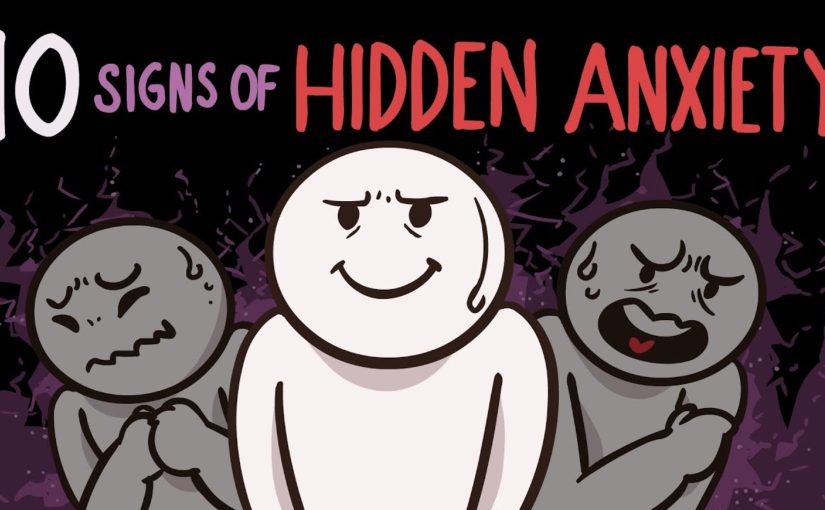
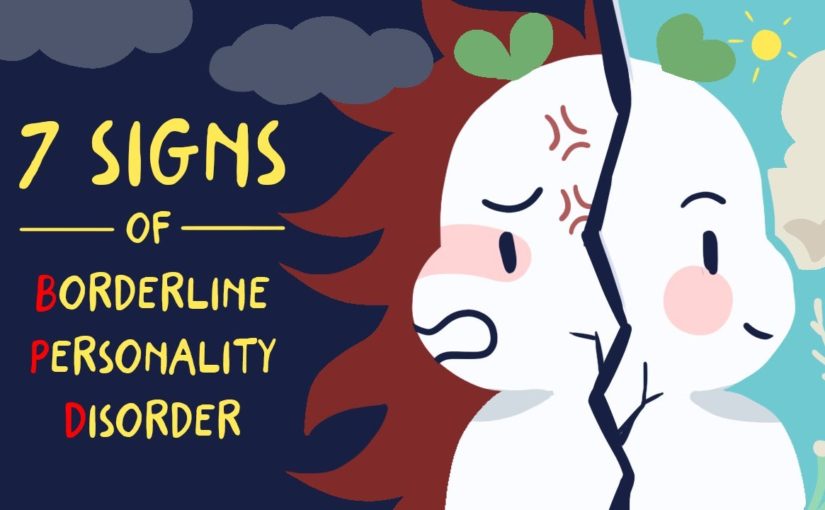
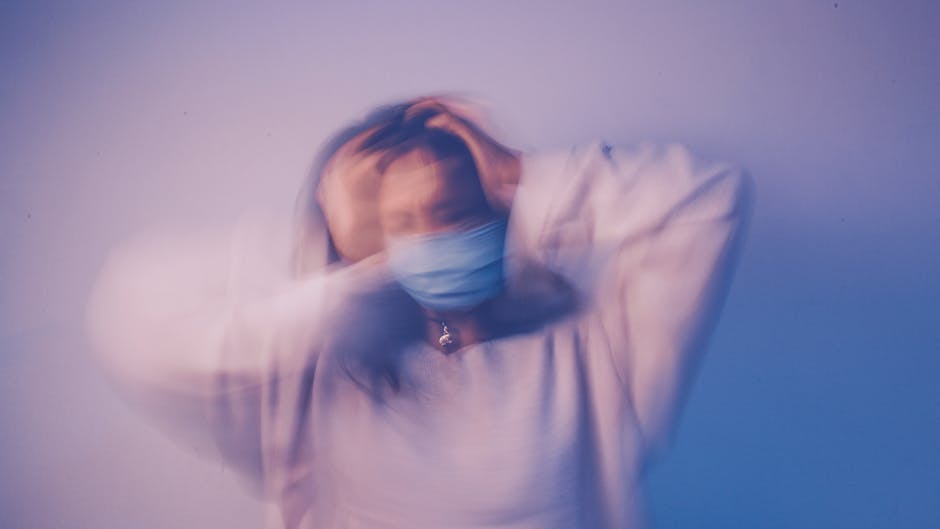 This could manifest in an irrational fear that loved ones will
leave you, social anxiety, or a desire to please everyone around you to try and prevent them
from rejecting you. The fact that people
with BPD often struggle to maintain relationships
only adds to this fear. Five, unstable relationships. Do you face difficulty maintaining interpersonal relationships like friendships, sibling bonds,
or romantic relationships? It can be difficult for people with BPD to preserve relationships because they often idealize
or think very highly of and then romanticize someone for a while and then devalue distrust
or become disgusted with them. A 2016 study suggests
that some people with BPD react to relationship
stressors with impulsivity which generates instability
in relations as well. Six, impulsive decisions. While cycles of impulsive
decisions commonly occur in those with bipolar disorder
and other mood disorders, they’re also a sign of BPD. Examples of impulsive decisions
someone with BPD might make are substance abuse,
spending or gambling sprees, skipping work or
appointments, unprotected sex, binge eating, or reckless driving. Impulsive decisions are
a hidden sign of BPD because others may think this impulsivity comes from low impulse control or another mental disorder instead of BPD. And seven, disassociation. Finally, people with
borderline personality disorder may disassociate more frequently and for longer periods than typical functioning people. Disassociation is when thoughts or emotions enter your mind and you find yourself incapable
of focusing on your actions, instead operating on autopilot or watching yourself do things without feeling connected to your body. Disassociation is a hidden symptom of BPD because others may assume
someone who is disassociating is just tired or distracted. Disassociation can also
be a symptom of PTSD or dissociative identity
disorder, also known as DID. But if it occurs alongside
the other things, it’s likely a hidden sign of BPD. It’s important to remember that mental disorders
affect everyone differently. Not everyone experiences all the symptoms. You might also experience
symptoms not listed here. That’s why it’s so important to seek help from a licensed mental health professional with experience in personality disorders if you think you or someone
you love might have BPD. Have you or someone, you
know, been diagnosed with BPD? Are you now better equipped to look out for its hidden symptoms? Let us know in the comments below. If you found this video helpful, be sure to hit the like
button and subscribe. And share it with someone
who might benefit from it. Thanks for watching
and we’ll see you soon..
This could manifest in an irrational fear that loved ones will
leave you, social anxiety, or a desire to please everyone around you to try and prevent them
from rejecting you. The fact that people
with BPD often struggle to maintain relationships
only adds to this fear. Five, unstable relationships. Do you face difficulty maintaining interpersonal relationships like friendships, sibling bonds,
or romantic relationships? It can be difficult for people with BPD to preserve relationships because they often idealize
or think very highly of and then romanticize someone for a while and then devalue distrust
or become disgusted with them. A 2016 study suggests
that some people with BPD react to relationship
stressors with impulsivity which generates instability
in relations as well. Six, impulsive decisions. While cycles of impulsive
decisions commonly occur in those with bipolar disorder
and other mood disorders, they’re also a sign of BPD. Examples of impulsive decisions
someone with BPD might make are substance abuse,
spending or gambling sprees, skipping work or
appointments, unprotected sex, binge eating, or reckless driving. Impulsive decisions are
a hidden sign of BPD because others may think this impulsivity comes from low impulse control or another mental disorder instead of BPD. And seven, disassociation. Finally, people with
borderline personality disorder may disassociate more frequently and for longer periods than typical functioning people. Disassociation is when thoughts or emotions enter your mind and you find yourself incapable
of focusing on your actions, instead operating on autopilot or watching yourself do things without feeling connected to your body. Disassociation is a hidden symptom of BPD because others may assume
someone who is disassociating is just tired or distracted. Disassociation can also
be a symptom of PTSD or dissociative identity
disorder, also known as DID. But if it occurs alongside
the other things, it’s likely a hidden sign of BPD. It’s important to remember that mental disorders
affect everyone differently. Not everyone experiences all the symptoms. You might also experience
symptoms not listed here. That’s why it’s so important to seek help from a licensed mental health professional with experience in personality disorders if you think you or someone
you love might have BPD. Have you or someone, you
know, been diagnosed with BPD? Are you now better equipped to look out for its hidden symptoms? Let us know in the comments below. If you found this video helpful, be sure to hit the like
button and subscribe. And share it with someone
who might benefit from it. Thanks for watching
and we’ll see you soon..
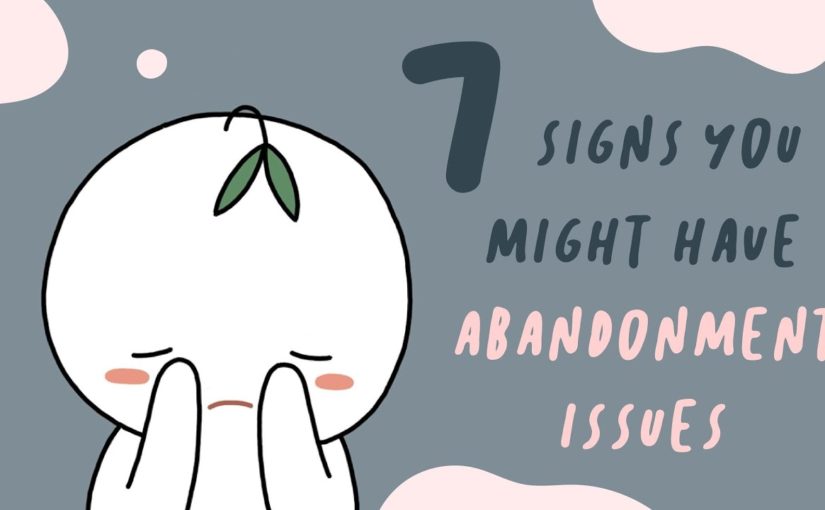
 Five: you look for reasons to leave. Do you always look for reasons to leave in fear of getting too attached to someone? You hold your loved ones to unrealistically high standards and you only focus on their flaws. You don’t give them any room for mistakes. You do this knowing that they’re bound to disappoint you. And when they fail to meet your expectations, you use it as an excuse to give up and leave. Six: you move on too quickly Do you have difficulty forming meaningful relationships that last because of a deep-seated fear of abandonment? When you cycle through relationships one after another and move on too quickly, you’re not allowing yourself the time and space to deal with the emotional fallout. Instead, you dive into something new and exciting to distract yourself. You never want to be alone, because it would force you to confront the personal issues you’ve been repressing for so long. And number 7… you cling to unhealthy relationships Do you find yourself gravitating towards all the wrong people? Have you stayed with someone knowing they’re bad for you? The trauma of being abandoned, especially at a young age, can stay with you for a long time. And since we’re all hard-wired to recreate our early childhood experiences for comfort and familiarity, your childhood taught you the wrong things about love. It’s not uncommon for you to be drawn to people who treat you poorly. Do you relate to any of the signs mentioned here? I know I did… Is a fear of abandonment harming your relationships and keeping you from being happy? Let us know in the comments below. If you found this video helpful, be sure to like and share this video with those who might benefit from it! Don’t forget to subscribe to Psych2go for more videos! Thanks for watching, and we’ll see you in the next one!
Five: you look for reasons to leave. Do you always look for reasons to leave in fear of getting too attached to someone? You hold your loved ones to unrealistically high standards and you only focus on their flaws. You don’t give them any room for mistakes. You do this knowing that they’re bound to disappoint you. And when they fail to meet your expectations, you use it as an excuse to give up and leave. Six: you move on too quickly Do you have difficulty forming meaningful relationships that last because of a deep-seated fear of abandonment? When you cycle through relationships one after another and move on too quickly, you’re not allowing yourself the time and space to deal with the emotional fallout. Instead, you dive into something new and exciting to distract yourself. You never want to be alone, because it would force you to confront the personal issues you’ve been repressing for so long. And number 7… you cling to unhealthy relationships Do you find yourself gravitating towards all the wrong people? Have you stayed with someone knowing they’re bad for you? The trauma of being abandoned, especially at a young age, can stay with you for a long time. And since we’re all hard-wired to recreate our early childhood experiences for comfort and familiarity, your childhood taught you the wrong things about love. It’s not uncommon for you to be drawn to people who treat you poorly. Do you relate to any of the signs mentioned here? I know I did… Is a fear of abandonment harming your relationships and keeping you from being happy? Let us know in the comments below. If you found this video helpful, be sure to like and share this video with those who might benefit from it! Don’t forget to subscribe to Psych2go for more videos! Thanks for watching, and we’ll see you in the next one!
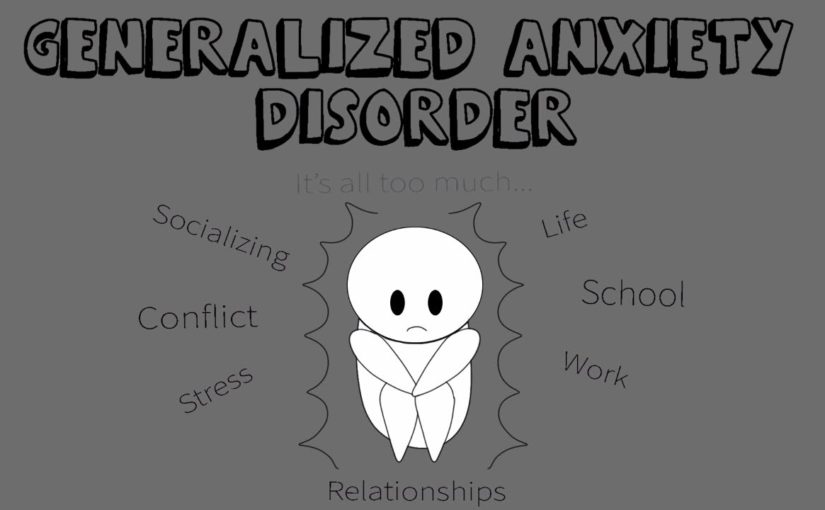



 If that’s just what smelling it can do? What about eating rosemary? We have studies on alertness and cognition and reduced stress hormone levels, by inhaling rosemary. However, there were no clinical studies on cognitive performance following ingestion of rosemary. Until now, Older adults, average age 75 were given two cups of tomato juice, with either nothing or a half. A teaspoon of powdered rosemary, which is what one might use in a typical recipe, or a full teaspoon, two teaspoons, or over a tablespoon of rosemary powder, and they even gave them some placebo pills to go with it to even further eliminate any placebo effects. Speed of memory is a potentially useful predictor of cognitive function during aging, and what they found is that the lowest dose had a beneficial effect, accelerating their processing speed, but the highest dose impaired their processing speed, maybe because the half-teaspoon dose improved alertness, while the 4 Teaspoon dose decreased alertness, So rosemary powder at the dose nearest to normal, culinary consumption demonstrated positive effects on speed of memory. The implicit take-home message being more isn’t necessarily better. Take high doses of herbal supplements extracts tinctures, just cooking with spices is sufficient. A conclusion, no doubt pleasing to the spice company that sponsored the study. No side effects were reported, but that doesn’t mean you can eat the whole bush.This poor guy swallowed a rosemary twig which punctured through the stomach into his liver, causing an abscess from which 2 cups of pus and a 2-inch twig were removed, so explore herbs and spices in your cooking Branch out. Just leave the branches out.
If that’s just what smelling it can do? What about eating rosemary? We have studies on alertness and cognition and reduced stress hormone levels, by inhaling rosemary. However, there were no clinical studies on cognitive performance following ingestion of rosemary. Until now, Older adults, average age 75 were given two cups of tomato juice, with either nothing or a half. A teaspoon of powdered rosemary, which is what one might use in a typical recipe, or a full teaspoon, two teaspoons, or over a tablespoon of rosemary powder, and they even gave them some placebo pills to go with it to even further eliminate any placebo effects. Speed of memory is a potentially useful predictor of cognitive function during aging, and what they found is that the lowest dose had a beneficial effect, accelerating their processing speed, but the highest dose impaired their processing speed, maybe because the half-teaspoon dose improved alertness, while the 4 Teaspoon dose decreased alertness, So rosemary powder at the dose nearest to normal, culinary consumption demonstrated positive effects on speed of memory. The implicit take-home message being more isn’t necessarily better. Take high doses of herbal supplements extracts tinctures, just cooking with spices is sufficient. A conclusion, no doubt pleasing to the spice company that sponsored the study. No side effects were reported, but that doesn’t mean you can eat the whole bush.This poor guy swallowed a rosemary twig which punctured through the stomach into his liver, causing an abscess from which 2 cups of pus and a 2-inch twig were removed, so explore herbs and spices in your cooking Branch out. Just leave the branches out.
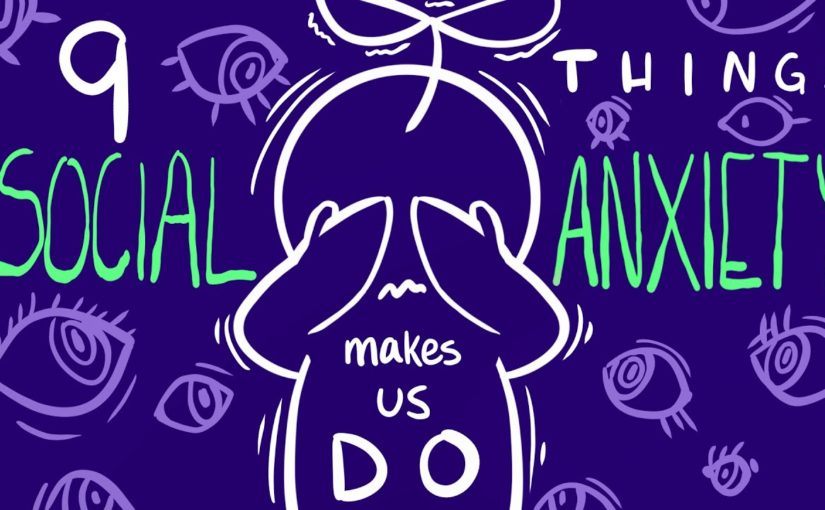
 It can be a lot easier to act busy rather than face the awkwardness of an unwanted conversation. So, this can become a habit of avoidance. If you have social anxiety, five constantly worrying about how everyone sees you. According to the Anxiety and Depression Association of America, those with a social anxiety disorder are increasingly concerned about how they are perceived by others. The last thing they want is to come off as awkward, fumbling, or boring. You’ve likely felt this way at some point throughout your life, whether it’s the desire to fit in with friends or make a good impression on a potential employer with social anxiety. However, this pressure to perform feels constantly heavy and can lead to full-blown panic attacks when in social or performance-based situations Number six is feeling lonely. Even when you’re surrounded by people, People with social anxiety can share this feeling with those who battle, depression and other mental illnesses as well. So, unfortunately, a lot of people can relate to this isolating feeling When social anxiety keeps you from being your true self. It can be difficult to feel included at all. It’s frustrating to be close to others, but not be able to connect with them in a comfortable way. If you’re struggling to effectively communicate and are extremely hesitant to even start a conversation that adds to your feelings of loneliness, even when you’re, surrounded by others, Number seven clenching your teeth and other physical discomforts, you feel shaky or lightheaded when faced with A social situation: Does your heart rate speed up or do your hands tremble? The stress that comes with social anxiety can manifest through physical symptoms. Many of the symptoms are signs of nervousness such as sweating, flushing, and feeling shaky According to Mayo Clinic. You might also be dealing with muscle tension, feeling that your mind has gone blank, or having trouble catching your breath. Number eight obsessing over how you look When you’re, constantly worried about how others perceive you. You’re likely to be concerned with how you look as well. You might have a distorted body image and think that you’re less physically attractive. Your thoughts can flit from your hair to your clothes or flaws in your skin. Thinking that it’s just all wrong In an attempt to feel comfortable in your own skin, you might spend an inappropriate amount of time and money on fixing your appearance, such as shopping for better clothes, getting high-end beauty products, or going on diets. If you think you’re overweight and number nine, you feel more like yourself around the people. You’re comfortable with Yourself, think you’re picky about who you spend time with, and triumph over shyness by conquering social anxiety disorder, Dr. Marie B. Stein and John R. Walker discusses behavior in children called selective mutism. This is when a child speaks and acts normally around select individuals but is completely silent around everyone else or when placed in certain situations. This is a more extreme example, but it shows how those with social anxiety are more likely to relax and open up around people. They already know and trust, do you or anyone you know resonate with any of these points mentioned in this video? If you’re concerned about social anxiety disorder, we encourage you to speak with a mental health professional. They can help you overcome any fears or debilitating problems you might have If you enjoyed watching this video, give us a thumbs up and share it with someone who might find it helpful as well. The studies and references used in this video are listed in the description below Don’t forget to hit the subscribe button for more Psych2go videos and as always thanks for watching and we’ll see you next time.
It can be a lot easier to act busy rather than face the awkwardness of an unwanted conversation. So, this can become a habit of avoidance. If you have social anxiety, five constantly worrying about how everyone sees you. According to the Anxiety and Depression Association of America, those with a social anxiety disorder are increasingly concerned about how they are perceived by others. The last thing they want is to come off as awkward, fumbling, or boring. You’ve likely felt this way at some point throughout your life, whether it’s the desire to fit in with friends or make a good impression on a potential employer with social anxiety. However, this pressure to perform feels constantly heavy and can lead to full-blown panic attacks when in social or performance-based situations Number six is feeling lonely. Even when you’re surrounded by people, People with social anxiety can share this feeling with those who battle, depression and other mental illnesses as well. So, unfortunately, a lot of people can relate to this isolating feeling When social anxiety keeps you from being your true self. It can be difficult to feel included at all. It’s frustrating to be close to others, but not be able to connect with them in a comfortable way. If you’re struggling to effectively communicate and are extremely hesitant to even start a conversation that adds to your feelings of loneliness, even when you’re, surrounded by others, Number seven clenching your teeth and other physical discomforts, you feel shaky or lightheaded when faced with A social situation: Does your heart rate speed up or do your hands tremble? The stress that comes with social anxiety can manifest through physical symptoms. Many of the symptoms are signs of nervousness such as sweating, flushing, and feeling shaky According to Mayo Clinic. You might also be dealing with muscle tension, feeling that your mind has gone blank, or having trouble catching your breath. Number eight obsessing over how you look When you’re, constantly worried about how others perceive you. You’re likely to be concerned with how you look as well. You might have a distorted body image and think that you’re less physically attractive. Your thoughts can flit from your hair to your clothes or flaws in your skin. Thinking that it’s just all wrong In an attempt to feel comfortable in your own skin, you might spend an inappropriate amount of time and money on fixing your appearance, such as shopping for better clothes, getting high-end beauty products, or going on diets. If you think you’re overweight and number nine, you feel more like yourself around the people. You’re comfortable with Yourself, think you’re picky about who you spend time with, and triumph over shyness by conquering social anxiety disorder, Dr. Marie B. Stein and John R. Walker discusses behavior in children called selective mutism. This is when a child speaks and acts normally around select individuals but is completely silent around everyone else or when placed in certain situations. This is a more extreme example, but it shows how those with social anxiety are more likely to relax and open up around people. They already know and trust, do you or anyone you know resonate with any of these points mentioned in this video? If you’re concerned about social anxiety disorder, we encourage you to speak with a mental health professional. They can help you overcome any fears or debilitating problems you might have If you enjoyed watching this video, give us a thumbs up and share it with someone who might find it helpful as well. The studies and references used in this video are listed in the description below Don’t forget to hit the subscribe button for more Psych2go videos and as always thanks for watching and we’ll see you next time.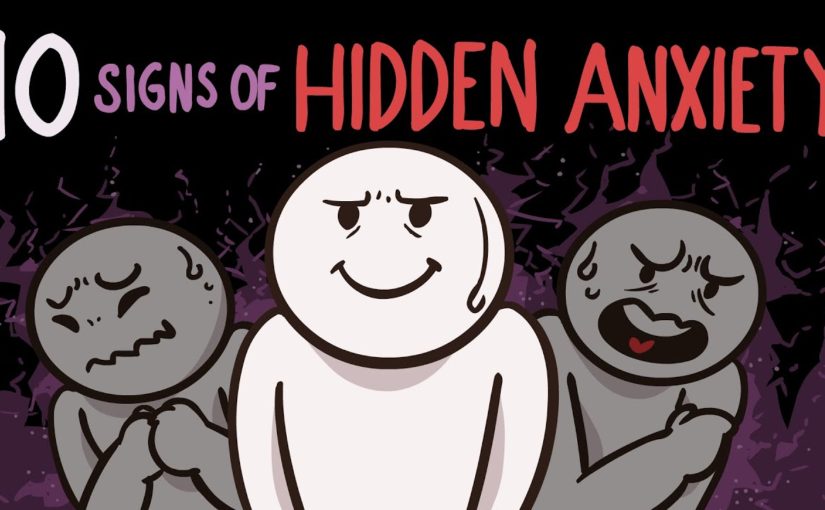
 Life isn’t always kind to us, and self-love and a balanced lifestyle don’t come easily. Living with anxiety, especially if it’s hidden or suppressed, can make it hard for us to feel good about ourselves and let ourselves feel happy. It makes us believe that we don’t deserve it and traps us in a vicious cycle of negative self-talk and constant pressure to be perfect. 9. You have a lot of negative thoughts. Are you a pessimist who is quick to find the downsides in every situation? Do you find yourself getting upset or stressed out over even the most minor inconveniences? Is every day a constant battle with yourself against the spiral of panicked and rational thoughts you have? In 1997, famed psychologist and cognitive therapist, Aaron Beck, termed this kind of thought pattern as catastrophic thinking, which he often observed in his patients who suffered from anxiety. And 10. You experience physical symptoms. Sometimes anxiety can be entirely physical because while your conscious mind may not always be aware of your anxiety it will definitely make itself known to your body. Things like erratic heartbeats, chest palpitations, muscle tension, a clenched jaw, shaky hands up sweating are all indicative of anxiety. Your body may be trying to let your mind know that you’re feeling anxious and stop it before it gets any worse. Do you relate to any of the problems listed here? Or do you do your best to seem ok? And hide your symptoms because you feel embarrassed about your anxiety? The truth is: you’re not alone and having mental health issues is nothing to be ashamed of. What do you plan to do next? Let us know in the comments below! Don’t forget to like this video and subscribe to Psych2Go for more psychology content. Thanks for reading and we’ll see you soon…
Life isn’t always kind to us, and self-love and a balanced lifestyle don’t come easily. Living with anxiety, especially if it’s hidden or suppressed, can make it hard for us to feel good about ourselves and let ourselves feel happy. It makes us believe that we don’t deserve it and traps us in a vicious cycle of negative self-talk and constant pressure to be perfect. 9. You have a lot of negative thoughts. Are you a pessimist who is quick to find the downsides in every situation? Do you find yourself getting upset or stressed out over even the most minor inconveniences? Is every day a constant battle with yourself against the spiral of panicked and rational thoughts you have? In 1997, famed psychologist and cognitive therapist, Aaron Beck, termed this kind of thought pattern as catastrophic thinking, which he often observed in his patients who suffered from anxiety. And 10. You experience physical symptoms. Sometimes anxiety can be entirely physical because while your conscious mind may not always be aware of your anxiety it will definitely make itself known to your body. Things like erratic heartbeats, chest palpitations, muscle tension, a clenched jaw, shaky hands up sweating are all indicative of anxiety. Your body may be trying to let your mind know that you’re feeling anxious and stop it before it gets any worse. Do you relate to any of the problems listed here? Or do you do your best to seem ok? And hide your symptoms because you feel embarrassed about your anxiety? The truth is: you’re not alone and having mental health issues is nothing to be ashamed of. What do you plan to do next? Let us know in the comments below! Don’t forget to like this video and subscribe to Psych2Go for more psychology content. Thanks for reading and we’ll see you soon…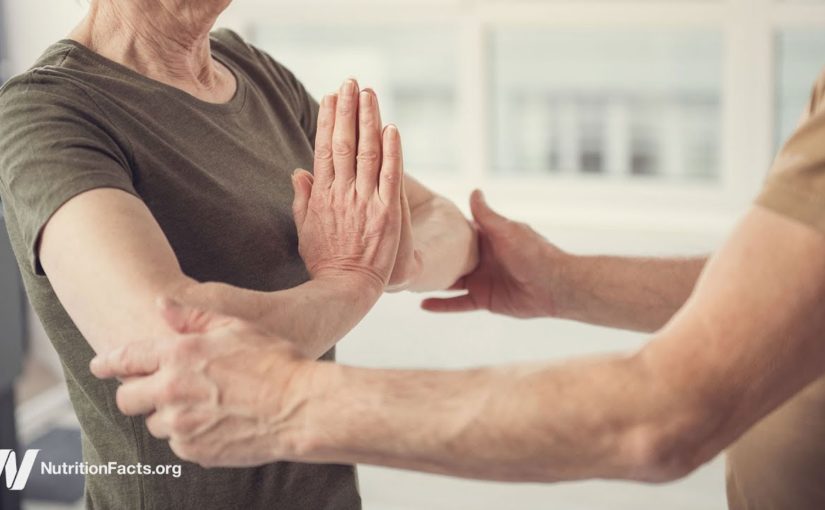
 However, the findings may need
to be interpreted with caution, since nearly half of the studies
didn’t define and adhere to a well-planned exercise regimen
in the control group. Furthermore, an exercise intervention
comparable in intensity to yoga was followed only in three
out of the eight studies included. And, for what it’s worth,
The majority of the studies, six out of eight, were from India. When yoga was carefully
compared to sham yoga, which consisted of chair exercises,
standing exercises, and slow walking to match
the yoga session, the relative yoga
benefits evaporated. Both yoga and sham yoga had identical effects
on blood sugar status. Hence, further well-controlled
Randomized trials are required prior to drawing conclusions
about the benefits of yoga in comparison to physical exercise
in patients with diabetes. Similar tentative conclusions were
reached for yoga for osteoarthritis. Put all the studies together
and yoga may indeed be effective for improving pain, function,
and stiffness in individuals with osteoarthritis of the knee,
compared not only to doing nothing but compared
to other kinds of exercise. They had some issues with
the quality of some of the studies, and so only a weak recommendation
for the use of yoga for osteoarthritis, but hey, if you like yoga or if yoga
is the only kind of exercise you’re willing to do, then
It’s probably better than nothing. Finally, in this video,
Let’s look at the effects of yoga compared to active and inactive
controls meaning like compared to other exercise regimens
or just like doing nothing on physical function and
health-related quality of life in adults aged 60 and older. Compared to doing nothing,
They found clear evidence that yoga improves physical function
and psychological well-being in older adults, so it definitely
better than nothing. What about compared
to other exercises? Yoga pulled ahead for lower limb
strength and lower body flexibility, but for improving balance,
mobility, and walking speed, yoga appeared comparable. Psychologically, yoga appeared
to beat out other exercises for alleviating depression
in older adults, but not anxiety or perceived
mental health in general.
However, the findings may need
to be interpreted with caution, since nearly half of the studies
didn’t define and adhere to a well-planned exercise regimen
in the control group. Furthermore, an exercise intervention
comparable in intensity to yoga was followed only in three
out of the eight studies included. And, for what it’s worth,
The majority of the studies, six out of eight, were from India. When yoga was carefully
compared to sham yoga, which consisted of chair exercises,
standing exercises, and slow walking to match
the yoga session, the relative yoga
benefits evaporated. Both yoga and sham yoga had identical effects
on blood sugar status. Hence, further well-controlled
Randomized trials are required prior to drawing conclusions
about the benefits of yoga in comparison to physical exercise
in patients with diabetes. Similar tentative conclusions were
reached for yoga for osteoarthritis. Put all the studies together
and yoga may indeed be effective for improving pain, function,
and stiffness in individuals with osteoarthritis of the knee,
compared not only to doing nothing but compared
to other kinds of exercise. They had some issues with
the quality of some of the studies, and so only a weak recommendation
for the use of yoga for osteoarthritis, but hey, if you like yoga or if yoga
is the only kind of exercise you’re willing to do, then
It’s probably better than nothing. Finally, in this video,
Let’s look at the effects of yoga compared to active and inactive
controls meaning like compared to other exercise regimens
or just like doing nothing on physical function and
health-related quality of life in adults aged 60 and older. Compared to doing nothing,
They found clear evidence that yoga improves physical function
and psychological well-being in older adults, so it definitely
better than nothing. What about compared
to other exercises? Yoga pulled ahead for lower limb
strength and lower body flexibility, but for improving balance,
mobility, and walking speed, yoga appeared comparable. Psychologically, yoga appeared
to beat out other exercises for alleviating depression
in older adults, but not anxiety or perceived
mental health in general.
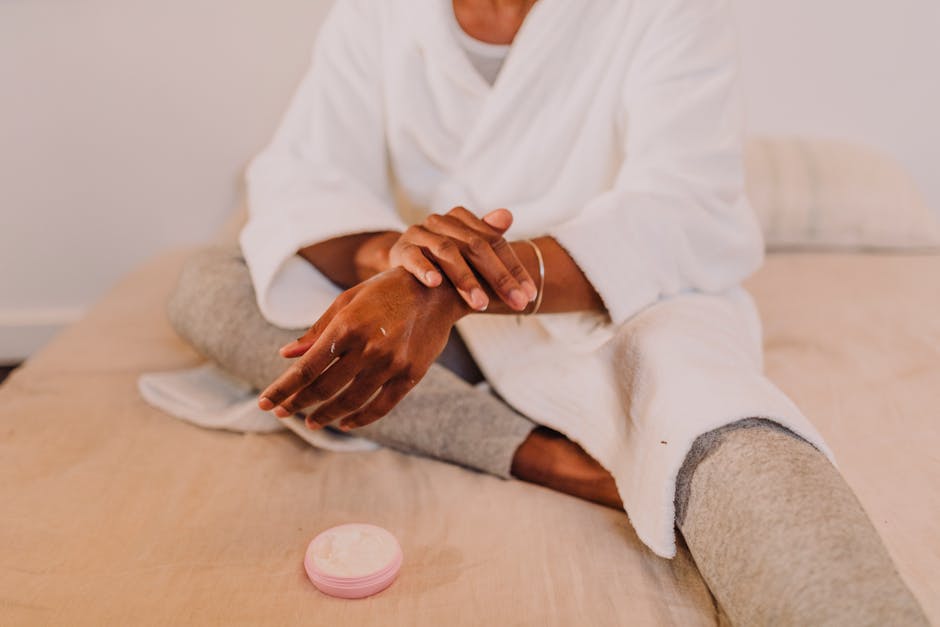 Often anxiety is diagnosed or correctly identified after unnecessary assessment and diagnostic evaluation. This is due to the elevated level of somatic symptoms of anxiety disorder. Research has shown that untreated elevated levels of anxiety predispose people to other serious health problems. Therefore, with that said, the first step to seeking treatment is to talk to your medical provider to make sure that your symptoms are not due to other physical problems. Of course, If anxiety is diagnosed, a mental health professional can work with you to design the best treatment plan for you. Sadly, many people with anxiety disorder do not seek treatment because they are unaware that anxiety is treatable. As stated earlier, anxiety is among the most common psychiatric illnesses. It is distinguished by the degree of anxiety experienced by the client, the duration of the anxiety, the severity of the anxiety, and the behavioral manifestation seen in the client experiencing the anxiety. It is important, especially important to know that Anxiety ranges from acute state to chronic disorders and they are often associated with physical symptoms such as chest, pain, chest, tightness, weakness, and shortness of breath. In the future, we will explore the diverse types of anxieties that exist, which will include panic, disorder, Agoraphobia, Specific Phobia, Social Anxiety, and Generalized Anxiety Disorder. If you or someone you know is experiencing a medical or mental health emergency, please call 911. You can also call the crisis line number 866, 903 3787, or go to the nearest emergency room for treatment. Our email address is located in the description. Please feel free to send us your broad questions. We will randomly select questions to be addressed in our future videos. Please, like comment subscribe, and share this video with your friends and families. Thank you for reading. I am Dr Ogochukwu Ojiaku. Thank you.
Often anxiety is diagnosed or correctly identified after unnecessary assessment and diagnostic evaluation. This is due to the elevated level of somatic symptoms of anxiety disorder. Research has shown that untreated elevated levels of anxiety predispose people to other serious health problems. Therefore, with that said, the first step to seeking treatment is to talk to your medical provider to make sure that your symptoms are not due to other physical problems. Of course, If anxiety is diagnosed, a mental health professional can work with you to design the best treatment plan for you. Sadly, many people with anxiety disorder do not seek treatment because they are unaware that anxiety is treatable. As stated earlier, anxiety is among the most common psychiatric illnesses. It is distinguished by the degree of anxiety experienced by the client, the duration of the anxiety, the severity of the anxiety, and the behavioral manifestation seen in the client experiencing the anxiety. It is important, especially important to know that Anxiety ranges from acute state to chronic disorders and they are often associated with physical symptoms such as chest, pain, chest, tightness, weakness, and shortness of breath. In the future, we will explore the diverse types of anxieties that exist, which will include panic, disorder, Agoraphobia, Specific Phobia, Social Anxiety, and Generalized Anxiety Disorder. If you or someone you know is experiencing a medical or mental health emergency, please call 911. You can also call the crisis line number 866, 903 3787, or go to the nearest emergency room for treatment. Our email address is located in the description. Please feel free to send us your broad questions. We will randomly select questions to be addressed in our future videos. Please, like comment subscribe, and share this video with your friends and families. Thank you for reading. I am Dr Ogochukwu Ojiaku. Thank you.
